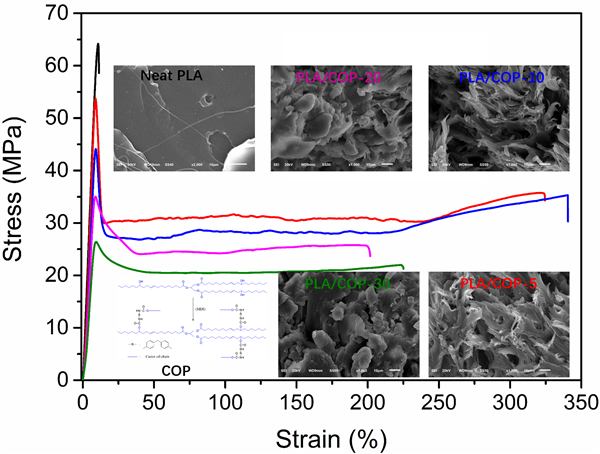课题组研究生赵桐辉同学第二篇关于蓖麻油动态硫化增韧聚乳酸的文章被RSC Advances接收,祝贺!
论文摘要:Dynamic vulcanization of biomass-derived castor oil in the presence of 4,4’-diphenylmethane diisocyanate (MDI) in polylactide (PLA) matrix was performed with the aim of toughening PLA sustainably. Crosslinking of castor oil with MDI took place rapidly under dynamic vulcanization conditions, leading to the formation of a tough blend, which showed a phase-separated morphology with castor oil derived polyurethane (COP) as a dispersed phase and PLA a continuous phase. The content of COP in the blends played an important role not only in the size of dispersed COP particles but also in the mechanical properties, rheological and crystallization behaviors of the formed PLA/COP blends. The size of dispersed COP, melt viscosity, and storage modulus of the blends increased significantly with COP content. The crystallization rate of neat PLA was enhanced by incorporation of COP due to the increased nucleation effect arisen from interfacial nucleation of the phase-separated blends. The thermal stability of the blends was slightly reduced compared to neat PLA. The elongation at break of PLA were considerably increased by 45 times to 338%, compared to 7.5% of neat PLA, with addition of only 5 wt% COP, meanwhile, the mechanical strength and modulus were largely remained. Cavitation, arisen from dispersed phase debonding from matrix, induced matrix plastic deformation was the toughening mechanism for the present PLA/COP blends.

全文链接:http://pubs.rsc.org/en/content/articlelanding/2016/ra/c6ra13631a#!divAbstract